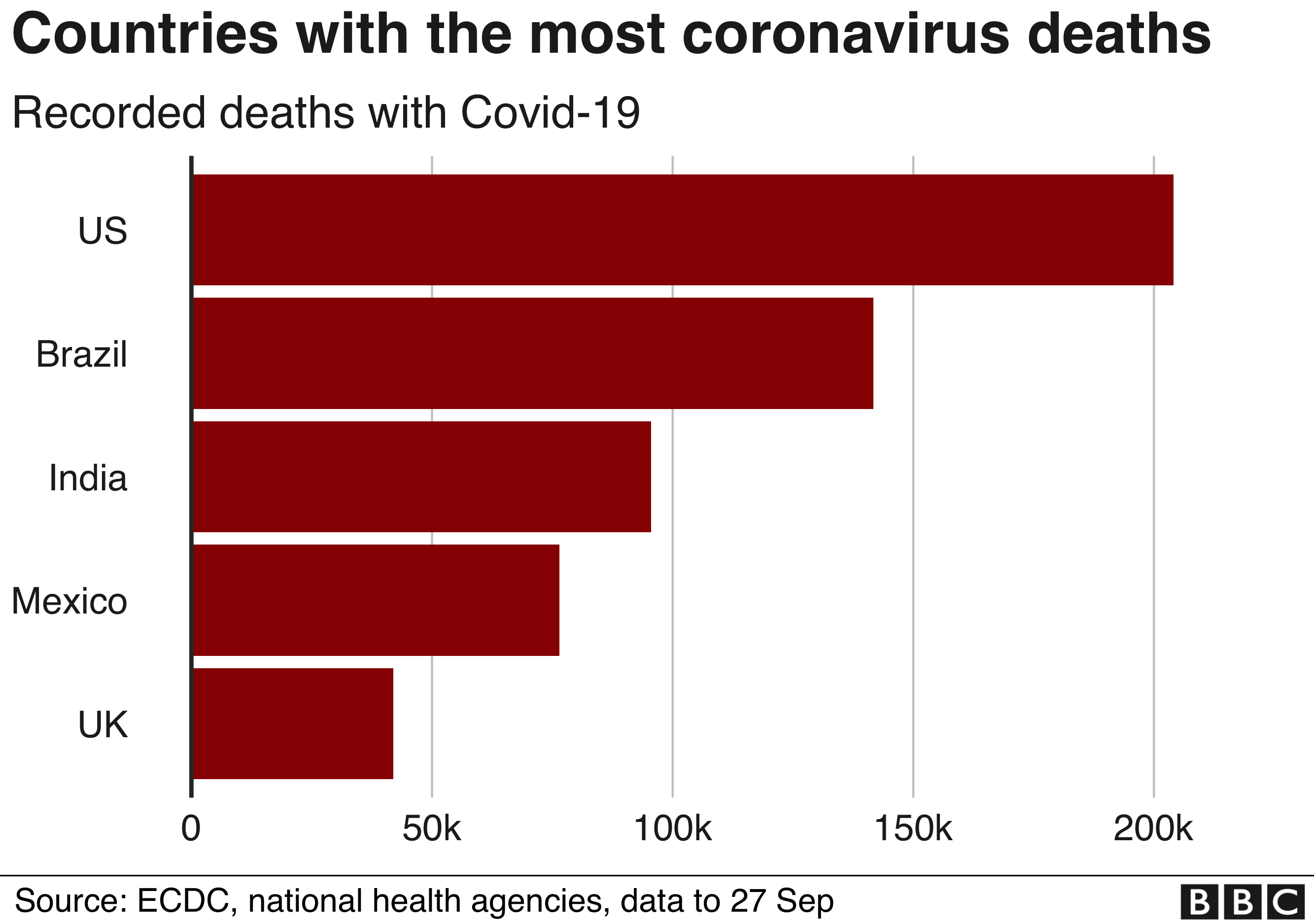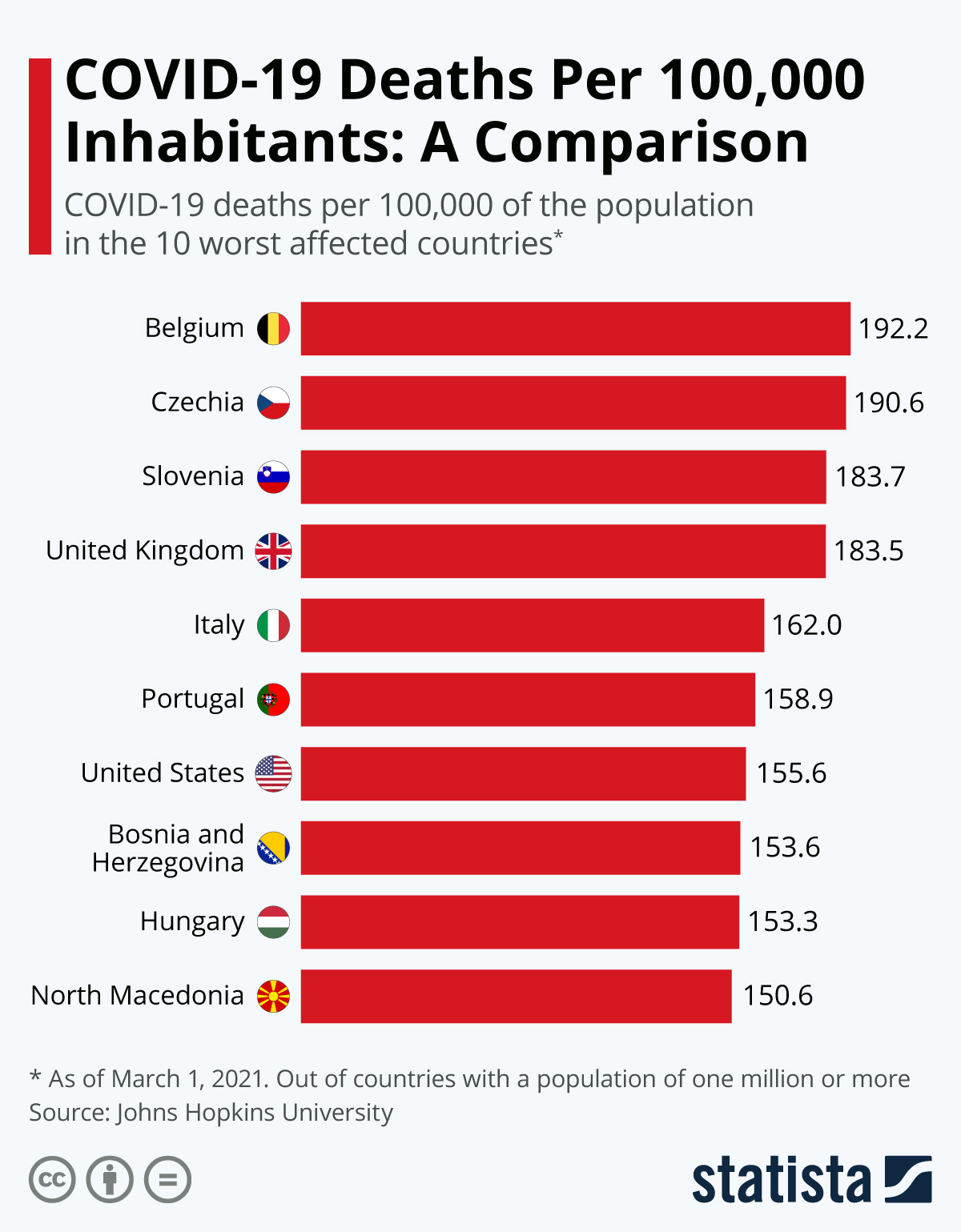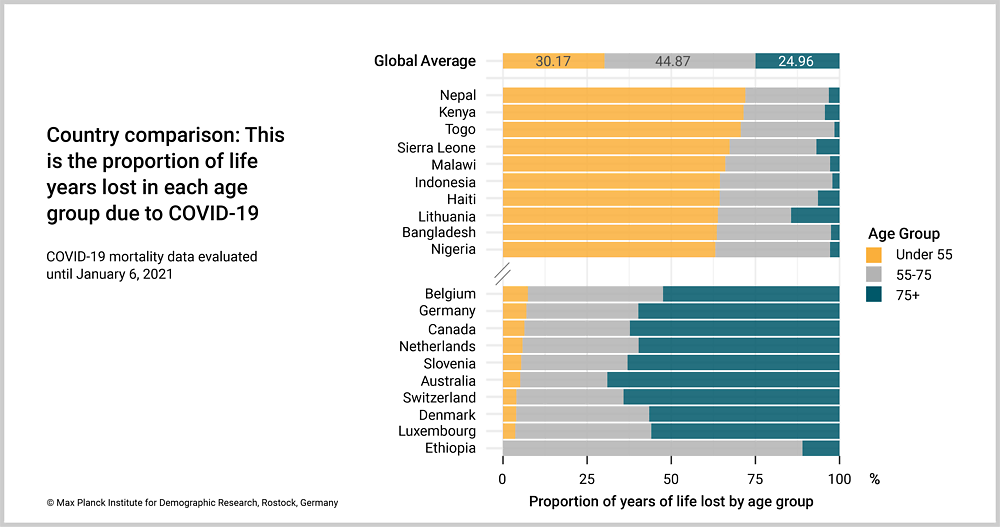Tragic Toll: COVID-19's Deadly Impact
How many people have died from COVID-19?
As of today, [date], the total number of deaths attributed to COVID-19 is estimated to be over [number]. This number represents a significant loss of life and highlights the devastating impact of the pandemic.
The majority of COVID-19 deaths have occurred in older adults and those with underlying health conditions. However, the virus can affect people of all ages and backgrounds.
The COVID-19 pandemic has had a profound impact on the world. It has caused widespread illness and death, disrupted economies, and led to social and political unrest.
The development of effective vaccines and treatments has helped to reduce the number of deaths from COVID-19. However, the virus continues to circulate, and new variants are emerging.
It is important to continue to take steps to protect yourself and others from COVID-19, including getting vaccinated, wearing a mask, and social distancing.
How many people have died from COVID-19?
The COVID-19 pandemic has had a devastating impact on the world, leading to widespread illness and death. As of today, [date], the total number of deaths attributed to COVID-19 is estimated to be over [number].
- Global impact: The pandemic has affected every country in the world, with some regions being hit harder than others.
- Age and health factors: The majority of COVID-19 deaths have occurred in older adults and those with underlying health conditions.
- Economic consequences: The pandemic has caused widespread economic disruption, leading to job losses and business closures.
- Social and political unrest: The pandemic has also led to social and political unrest, as people have protested lockdowns and other public health measures.
- Long-term health effects: Many people who recover from COVID-19 experience long-term health effects, such as fatigue, shortness of breath, and cognitive problems.
The COVID-19 pandemic is a global tragedy. The number of deaths is a stark reminder of the devastating impact of this virus. It is important to continue to take steps to protect yourself and others from COVID-19, including getting vaccinated, wearing a mask, and social distancing.
Global impact
The global impact of the COVID-19 pandemic is reflected in the number of deaths it has caused worldwide. As of today, [date], the total number of deaths attributed to COVID-19 is estimated to be over [number].
- Unequal distribution of deaths: The pandemic has not affected all countries equally. Some regions, such as Europe and North America, have been hit harder than others, such as Africa and South America.
- Factors contributing to higher death rates: There are a number of factors that have contributed to higher death rates in some regions, including population density, healthcare capacity, and government policies.
- Global cooperation and support: The global community has come together to support countries that have been hit hardest by the pandemic. This support has included the provision of medical supplies, financial assistance, and technical expertise.
- Long-term consequences: The pandemic is likely to have long-term consequences for the global community. These consequences include economic disruption, social unrest, and increased poverty.
The global impact of the COVID-19 pandemic is a reminder that we are all interconnected. The virus does not respect borders, and it can affect anyone, regardless of their age, race, or nationality. It is important to continue to take steps to protect ourselves and others from COVID-19, including getting vaccinated, wearing a mask, and social distancing.
Age and health factors
The age and health status of a person are two of the most important factors that determine their risk of dying from COVID-19.
- Older adults: People over the age of 65 are at a higher risk of dying from COVID-19 than younger people. This is because the immune system weakens with age, making older adults more susceptible to severe illness.
- Underlying health conditions: People with certain underlying health conditions, such as heart disease, diabetes, and obesity, are also at a higher risk of dying from COVID-19. This is because these conditions can make it more difficult for the body to fight off the virus.
- Combination of factors: The risk of dying from COVID-19 is highest for people who are both older and have underlying health conditions.
The connection between age, health factors, and COVID-19 deaths highlights the importance of protecting vulnerable populations. Older adults and people with underlying health conditions should take extra precautions to avoid exposure to the virus, and they should get vaccinated as soon as possible.
Economic consequences
The economic consequences of the COVID-19 pandemic are closely linked to the number of deaths caused by the virus. The pandemic has led to widespread economic disruption, resulting in job losses, business closures, and a decline in economic activity.
- Job losses: The pandemic has caused widespread job losses, as businesses have been forced to close or reduce their operations. This has led to a rise in unemployment and a decline in household income.
- Business closures: Many businesses have been forced to close due to the pandemic. This has led to a decline in economic activity and a loss of tax revenue for governments.
- Decline in economic activity: The pandemic has led to a decline in economic activity, as people have been forced to stay home and businesses have been forced to close. This has led to a decline in GDP and a rise in government debt.
The economic consequences of the pandemic are likely to have a long-term impact on the global economy. The job losses and business closures that have occurred during the pandemic are likely to lead to a decline in economic growth and an increase in poverty.
Social and political unrest
The social and political unrest that has occurred during the COVID-19 pandemic is directly linked to the number of deaths caused by the virus. The frustration and anger that people feel over the loss of loved ones, the economic consequences of the pandemic, and the restrictions on their freedom have led to protests and demonstrations in many countries.
In some cases, these protests have turned violent, leading to injuries and even deaths. The unrest has also made it more difficult for governments to implement public health measures, such as lockdowns and mask mandates, which are essential for controlling the spread of the virus.
The social and political unrest that has occurred during the pandemic is a reminder that the human cost of COVID-19 extends beyond the number of deaths. The pandemic has had a profound impact on people's lives, and the social and political unrest that has occurred is a reflection of the frustration and anger that people feel.
Long-term health effects: Many people who recover from COVID-19 experience long-term health effects, such as fatigue, shortness of breath, and cognitive problems.
The long-term health effects of COVID-19 are a growing concern, as they can significantly impact the quality of life for survivors. These effects can range from mild to severe, and they can last for months or even years after the initial infection.
One of the most common long-term effects of COVID-19 is fatigue. Many survivors report feeling tired and lacking energy, even after they have recovered from the acute phase of the illness. This fatigue can make it difficult to perform everyday tasks and can interfere with work and social activities.
Another common long-term effect of COVID-19 is shortness of breath. This can range from mild shortness of breath to severe dyspnea, which can make it difficult to breathe. Shortness of breath can be caused by damage to the lungs, and it can persist even after the lungs have healed from the initial infection.
Cognitive problems are also a common long-term effect of COVID-19. These problems can range from mild memory loss to more severe cognitive impairment. Survivors may have difficulty concentrating, remembering things, and making decisions. Cognitive problems can make it difficult to return to work or school, and they can also affect relationships and social activities.
The long-term health effects of COVID-19 are a serious concern, and they can have a significant impact on the lives of survivors. It is important to be aware of these effects and to seek medical attention if you are experiencing any of them.
FAQs about COVID-19 Deaths
The COVID-19 pandemic has had a devastating impact on the world, leading to widespread illness and death. As of today, [date], the total number of deaths attributed to COVID-19 is estimated to be over [number].
Question 1: How many people have died from COVID-19 globally?
Answer: As of today, [date], the total number of deaths attributed to COVID-19 is estimated to be over [number].
Question 2: What is the case fatality rate of COVID-19?
Answer: The case fatality rate of COVID-19 varies depending on a number of factors, including the age and health status of the population. However, the overall case fatality rate is estimated to be around 1%.
Question 3: Who is most at risk of dying from COVID-19?
Answer: The risk of dying from COVID-19 is highest for older adults and people with underlying health conditions. However, anyone can get sick from COVID-19, regardless of their age or health status.
Question 4: What are the most common symptoms of COVID-19?
Answer: The most common symptoms of COVID-19 are fever, cough, and shortness of breath. However, some people may experience other symptoms, such as fatigue, muscle aches, and loss of taste or smell.
Question 5: How can I protect myself from COVID-19?
Answer: The best way to protect yourself from COVID-19 is to get vaccinated, wear a mask, and practice social distancing. You should also wash your hands frequently and avoid touching your face.
Question 6: What should I do if I think I have COVID-19?
Answer: If you think you have COVID-19, you should get tested as soon as possible. You should also isolate yourself from others to avoid spreading the virus.
Summary of key takeaways or final thought: The COVID-19 pandemic is a serious global health crisis. The best way to protect yourself and others from COVID-19 is to get vaccinated, wear a mask, and practice social distancing.
Transition to the next article section: For more information about COVID-19, please visit the website of the World Health Organization.
Conclusion
The COVID-19 pandemic has had a devastating impact on the world, leading to widespread illness and death. As of today, [date], the total number of deaths attributed to COVID-19 is estimated to be over [number].
The pandemic has affected every country in the world, with some regions being hit harder than others. The majority of COVID-19 deaths have occurred in older adults and those with underlying health conditions. The pandemic has also had a significant impact on the global economy, leading to widespread job losses and business closures.
The COVID-19 pandemic is a serious global health crisis. It is important to continue to take steps to protect yourself and others from COVID-19, including getting vaccinated, wearing a mask, and practicing social distancing.



Detail Author:
- Name : Maiya Macejkovic
- Username : zula49
- Email : heaney.tania@gmail.com
- Birthdate : 2001-12-29
- Address : 26114 Noelia Estate North Vergie, MS 73693-4877
- Phone : 469-302-1876
- Company : Collins-Kihn
- Job : Environmental Science Technician
- Bio : Ut ab sit commodi. Voluptatem omnis ex porro error eligendi eaque aperiam magnam. Voluptatem officia rerum vitae quis quos.
Socials
instagram:
- url : https://instagram.com/bethany.kuhic
- username : bethany.kuhic
- bio : Pariatur dolorum molestias nostrum eius repellat ut. Non officiis quis corporis sequi aut.
- followers : 2181
- following : 1492
facebook:
- url : https://facebook.com/bkuhic
- username : bkuhic
- bio : Cum incidunt cupiditate culpa qui quas eum. Eligendi quis et magni.
- followers : 3022
- following : 630
twitter:
- url : https://twitter.com/bethany_kuhic
- username : bethany_kuhic
- bio : Et quia tenetur qui est nisi animi velit. Voluptatem nihil aut sed quo.
- followers : 1881
- following : 376
linkedin:
- url : https://linkedin.com/in/kuhic2007
- username : kuhic2007
- bio : Sed sequi soluta ut ut.
- followers : 6479
- following : 2551
tiktok:
- url : https://tiktok.com/@bkuhic
- username : bkuhic
- bio : Recusandae non eaque asperiores eius velit quia.
- followers : 4878
- following : 83